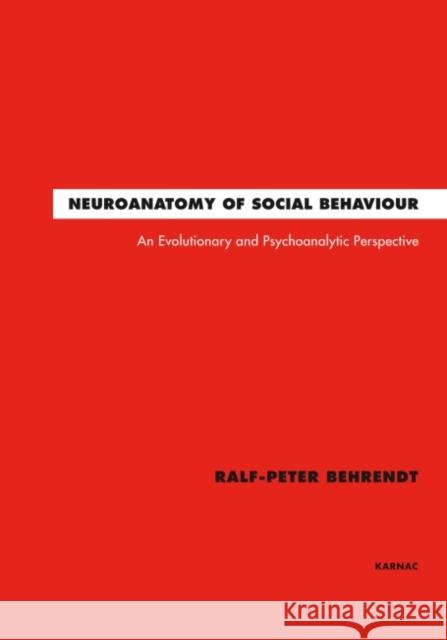Neuroanatomy of Social Behaviour: An Evolutionary and Psychoanalytic Perspective » książka
Neuroanatomy of Social Behaviour: An Evolutionary and Psychoanalytic Perspective
ISBN-13: 9781855758803 / Angielski / Twarda / 2010 / 690 str.
Neuroanatomy of Social Behaviour: An Evolutionary and Psychoanalytic Perspective
ISBN-13: 9781855758803 / Angielski / Twarda / 2010 / 690 str.
(netto: 443,08 VAT: 5%)
Najniższa cena z 30 dni: 453,32
ok. 16-18 dni roboczych.
Darmowa dostawa!
Understanding how the brain subserves, and has evolved for, seemingly complex social behavior requires an evolutionarily and psychoanalytically informed framework - a framework that sets itself apart from cognitivism and speculations about conscious agency or a -self- as an actor. Any position that does not fully discard the idea that conscious phenomena can cause behavior (or that we have free will), hinders advances toward an evolutionarily feasible theory of brain mechanisms of social behavior. Accordingly, a key concern of the book is to seek clarification of the relationship between consciousness, behavior, and brain. This theme, as well as themes concerned with the constituent elements of human social behavior and personality - such as aggression, avoidance, anxiety, and reward seeking - run through the book, being incorporated into the discussion of the various brain structures and regulatory mechanisms.
Psychoanalysis not only emphasizes the primacy of the unconscious in social behavior, it also allows us to relate all forms of social behavior, and its variations into the extremes of psychopathology, to the expression of a few behavior mechanisms that are deeply rooted in the evolution of defensive and reward-seeking behaviors of vertebrates. Advances in biological psychiatry and behavioral neuroscience, reviewed here, illustrate the functioning under -extreme conditions- of a system that balances and intertwines defensive, aggressive, and reward-seeking motivational processes - processes that lie hidden in the interpersonal and cultural fabric of the social world that surrounds us.











